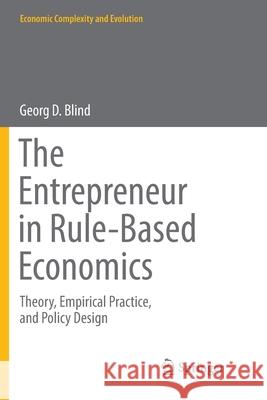The Entrepreneur in Rule-Based Economics: Theory, Empirical Practice, and Policy Design » książka
topmenu
The Entrepreneur in Rule-Based Economics: Theory, Empirical Practice, and Policy Design
ISBN-13: 9783319873930 / Angielski / Miękka / 2018 / 220 str.
Kategorie:
Kategorie BISAC:
Wydawca:
Springer
Seria wydawnicza:
Język:
Angielski
ISBN-13:
9783319873930
Rok wydania:
2018
Wydanie:
Softcover Repri
Ilość stron:
220
Waga:
0.37 kg
Wymiary:
23.5 x 15.49 x 1.3
Oprawa:
Miękka
Wolumenów:
01
Dodatkowe informacje:
Wydanie ilustrowane











